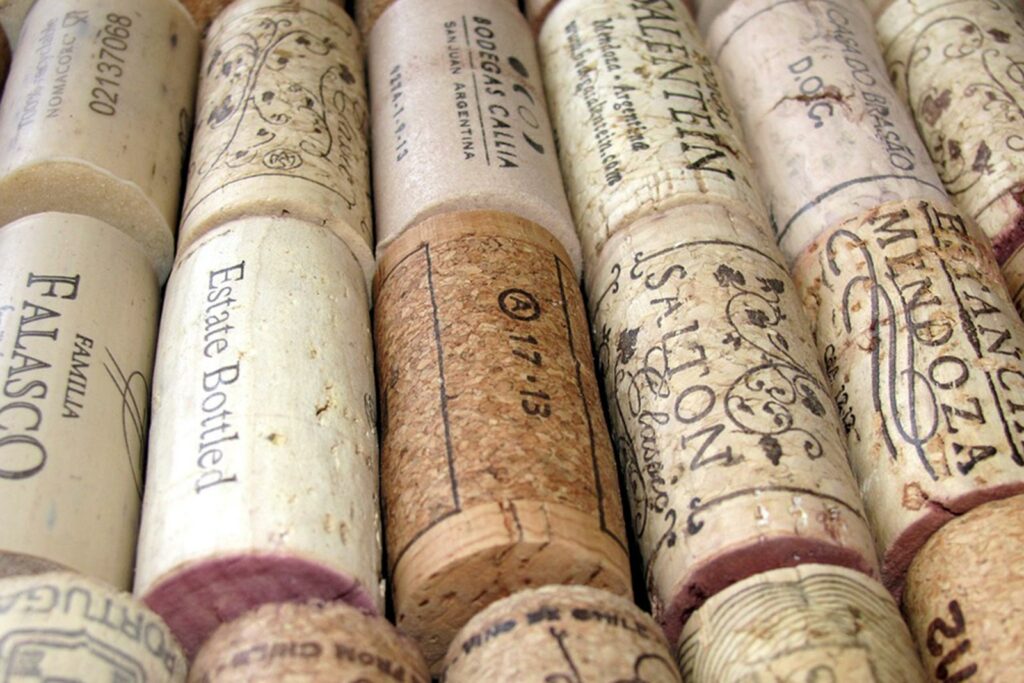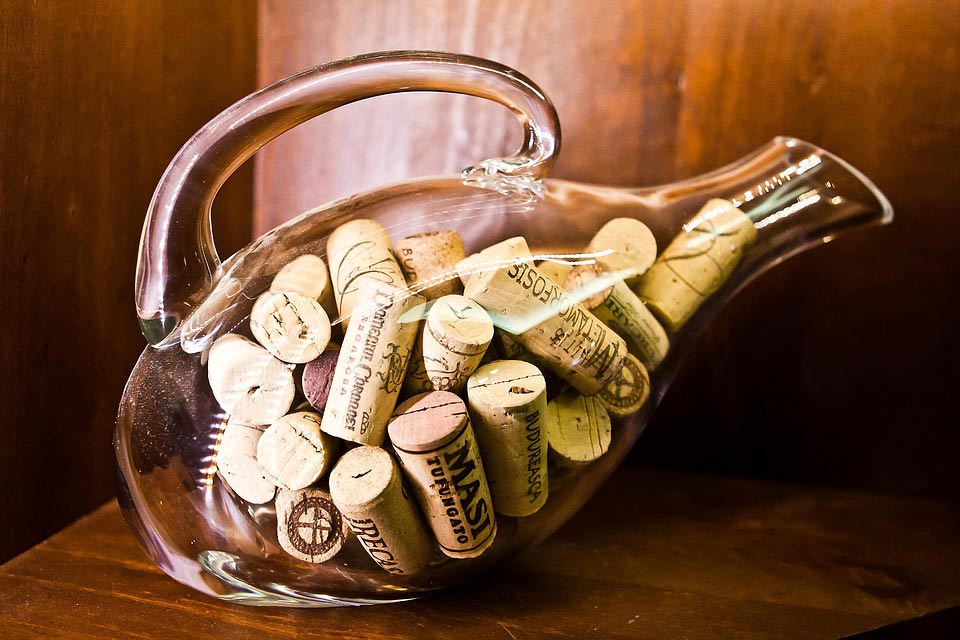When it comes to preserving a wine’s freshness and aromas, the choice of cork is a crucial decision. Wine lovers know that the type of cork can have a significant impact on the aging, preservation and even tasting of a bottle. In this article, we explore three popular cork types, analyzing their respective characteristics to help wine enthusiasts choose the ideal cork for every occasion.
1. Natural cork
Natural cork stoppers are timeless classics, long considered the standard for sealing wine bottles. Made from cork, a natural and renewable material, these stoppers are appreciated for their elasticity, their ability to adapt to the shape of the bottle neck, and their ability to allow optimal aging of the wine. Cork stoppers are particularly well-suited to red wines and ageing wines that require a slow maturation process.
Pros:
- Promotes wine ageing with controlled micro-oxygenation.
- Traditional and aesthetically pleasing.
- Easily extracted with a standard corkscrew.
Cons:
- Possibility of cork taint (TCA) which may alter the wine.
- May degrade faster than other materials.
2. Technical cork
Technical cork stoppers are a modern evolution of natural cork stoppers. They are designed to minimize the risk of contamination while retaining the advantages of cork. Thanks to advanced treatment processes, these corks offer greater uniformity and reduce the chances of cork taint. They are suitable for a variety of wines, from white to red, and also for ageing wines.
Pros:
- Treatment techniques reduce the risk of cork taint.
- Allows controlled micro-oxygenation for aging.
Cons:
- Can be more expensive than natural corks.
- Extraction sometimes more difficult.
3. Screw caps
Screw caps have gained in popularity in recent years as a practical alternative to traditional closures. Made of metal or plastic, they provide a hermetic seal that limits the risk of oxidation. Screw caps are particularly suitable for white and light wines, to be consumed in the first few years after bottling.
Pros:
- Hermetic seal, limiting the risk of oxidation.
- Easy to open and reseal, no need for a corkscrew.
Cons:
- Less suitable for ageing wines requiring micro-oxygenation.
- Some feel they lack the traditional elegance associated with cork stoppers.
Detailed comparison
Usage Recommandé
- Natural cork stopper: ideal for red wines and wines requiring a slow aging process.
- Technical cork: suitable for a variety of wines, offering a modern alternative with less risk of cork taint.
- Screw cap: perfect for white wines and wines to be consumed within the first few years, offering practicality and tightness.
Risques et avantages
- Natural cork stoppers: risk of cork taint, but promote wine ageing through micro-oxygenation.
- Technical cork: less risk of cork taint thanks to modern techniques, while retaining the advantages of cork.
- Screw cap: hermetic seal, but less suitable for aging wines.
Conclusion

Choosing the perfect wine stopper depends on the type of wine, the desired shelf life and individual preferences. Lovers of long-keeping wines will often prefer natural cork stoppers, while those who appreciate practicality will opt for screw caps. Technical corks offer an interesting compromise between tradition and modernity. Ultimately, the diversity of corks reflects the diversity of wines, offering wine-lovers a palette of choices to seal in their unique taste experiences.
